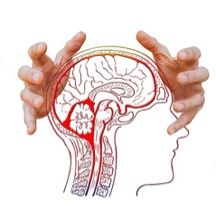Memory
Three Things to Know About “Brain Training” Programs
Does brain training work? The answer is both yes and no.
Posted February 2, 2018 Reviewed by Davia Sills

We all want to be smarter, though our reasons can be as individual as we are. Some of us worry about cognitive decline with age. Others seek to be brighter for our work. Some just want to be faster at solving those pesky Sudoku problems.
Consumers have plenty of choice for how to “train up” their brains. Lumosity, CogFit, and Elevate are just a few programs offering to help you “boost your brain” at a modest cost, usually in the form of simple games for your mobile device. We all love games, so the commitment seems minor, but how much do we really know about these programs? The science can be daunting, if a company even shares its scientific research at all.
Though nobody can tell you what will work best for your own individual needs, there are three key things to know about brain-training programs. The knowledge won’t make you any smarter, but it will help you understand the principles behind the games, and why they sometimes work and sometimes don’t.
First, training must be adaptive.
Let’s start with a simple analogy—darts. If you wanted to be a better darts player, how would you start? Hopefully, you wouldn’t stand 20 yards from a dartboard and start chucking. Instead, you’d probably try a shot with a moderate level of success, maybe a few feet away, then step forward or backward depending on how you do. In other words, you would adapt.
The same concept applies to brain training. You certainly wouldn’t start working on your memory by studying 50-item lists—the key is to begin simple and then expand, always at the limit of your capabilities. With sports, as with cognitive training, we do best when we attempt what is just outside of our reach.
This sounds simple enough, but it also means that easy training is worthless training. Not only should you avoid any brain-training programs which aren’t adaptive, but you should also stay away from games that don’t severely challenge you.
This constant need for a challenge is also why there’s so little scientific support for brain training, at least in the academic realm. Spending 20 hours memorizing lists won’t improve your brain unless the lists are the proper length, and that length is different for every person. It may even vary day-to-day, which makes finding your “training sweet spot” very hard.
Second, training must be varied.
There’s something funny about memory—it’s not a single thing. For example, there’s verbal memory and visual memory, each exercising very different parts of the brain. Most good training programs involve a rich sensory experience of sights and sounds to improve these separate perceptual and memory systems. The good ones will also tap different math and verbal retention abilities, too, among other things.
Intelligence doesn’t just involve a single skill, so training on one thing doesn’t promise benefits anywhere else. Keep in mind that to see benefits in a broad sense, you’ll need to “train-up” lots of different skills. This also has its benefits, because training on just a single task can get tedious. It also means, however, that getting real benefits will take some time.
Finally, training must be generalized.
If there’s one thing to remember when it comes to brain-training programs, it’s that you’re not trying to master the skills you’re training on. In fact, most games are unlike anything you’d ever encounter in daily life. The hope is that your practice generalizes to more real-world abilities.
And here lies the biggest problem. Those skills don’t always generalize. While some research has shown modest improvement in things like IQ following brain-training, many more studies have not. So many, in fact, that in 2014 over 70 scientists signed a statement warning consumers away from commercial “brain-training” programs.
Often these programs feel productive because you get better over time. But that doesn’t mean they’re making you any smarter—only better at their specific games.
This can also lead to some misleading advertising. Any claim of “200 percent improvement” should immediately meet the question, “Improvement on what?” Many companies avoid this question by citing research on the brain’s “plasticity,” a rather meaningless term which means that our brains change. Obviously, they do! A brain that never changes is a brick, not a brain. How else could a brain remember what you ate for breakfast?
Every memory, every social interaction, changes the brain, and this has never been doubted. The real question is whether those changes involve some global ability to solve problems, or something much narrower. Unless a program makes specific promises regarding how its training generalizes, you’re best off staying far away.
So should you go out and sign up for Lumosity or CogFit or some other program promising to make you smarter? That choice is up to you, but I’d be wary of simple solutions. Brain training programs may make us all smarter one day, or they could follow the path of the South Beach Diet and Tae Bo. They were fun and simple too.
For now, a good start could be to eat well, sleep enough, and exercise now and then. It may not be exciting, but your brain will certainly thank you. For that, science is well decided.




